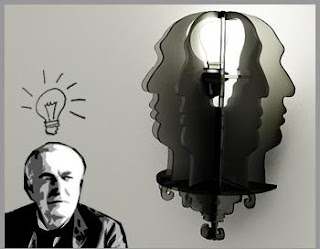
“Fear is a habit; so is self-pity, defeat, anxiety, despair, hopelessness and resignation. You can eliminate all of these negative habits with two simple resolves: I can!! and I will!!”
- unknown
Many undergraduates fear, if not worry about this one point in their college life wherein they get to write a term paper. Custom term paper suddenly becomes the new trend in online marketing. Although term paper writing requires tremendous amount of effort and tons of logic, it's not as formidable as it seems. Here are some tips that will help you write like a custom term paper professional.
First things first. Choose a subject that is not too general. One common mistake in writing custom term papers is choosing a topic that is not specific. Aside from being interesting, it would be great help in producing a cohesive paper if your selected topic only focuses on a certain subject. A good topic involves a lot of questions. The challenge is on you now to provide a systematic set of answers.
You should also see to it that your sources of material are quite credible and up-to-date. You can't expect a brilliant term paper out of resources that are old and irrelevant. The ideal age for quality materials is not more than 10 years old, except for those papers that use historical point of view.
You can then proceed to gathering notes. Taking down accurately and honestly is the key to a well-organize collection of facts. Eventually, this will help you formulate a comprehensive outline. This outline will serve as the backbone of your term paper. Make sure that you don't distort any single detail. Do not choose only the facts that will support your paper, ignoring other arguments will not help you answer the other side of your paper.
After creating the structure of your paper through outlining, the next step is to write a first draft. Be open for revisions and editing. Listen to opinions that will help you mold a better term paper. Remember that good is not enough if there is room for improvement.
First things first. Choose a subject that is not too general. One common mistake in writing custom term papers is choosing a topic that is not specific. Aside from being interesting, it would be great help in producing a cohesive paper if your selected topic only focuses on a certain subject. A good topic involves a lot of questions. The challenge is on you now to provide a systematic set of answers.
You should also see to it that your sources of material are quite credible and up-to-date. You can't expect a brilliant term paper out of resources that are old and irrelevant. The ideal age for quality materials is not more than 10 years old, except for those papers that use historical point of view.
You can then proceed to gathering notes. Taking down accurately and honestly is the key to a well-organize collection of facts. Eventually, this will help you formulate a comprehensive outline. This outline will serve as the backbone of your term paper. Make sure that you don't distort any single detail. Do not choose only the facts that will support your paper, ignoring other arguments will not help you answer the other side of your paper.
After creating the structure of your paper through outlining, the next step is to write a first draft. Be open for revisions and editing. Listen to opinions that will help you mold a better term paper. Remember that good is not enough if there is room for improvement.




